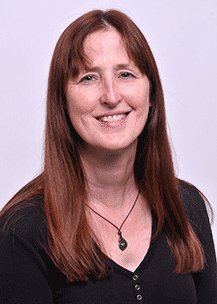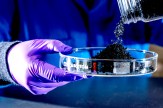The enriched get richer

When some of Northeastern’s brightest young biology, biochemistry and behavioral neuroscience majors gather for the advanced introductory course, “Inquiries in Cell and Molecular Biology,” they’ll find Gail Begley armed with some new teaching tools that should make for a richer experience all around.
Begley, an associate academic specialist in biology, was one of more than a dozen biologists selected to participate in a prestigious year-long virtual residency program that enables scholars to increase their understanding and use of assessment tools, teaching practices and data analysis.
The inaugural Assessment Residency of the American Society for Microbiology/National Science Foundation Biology Scholars Program kicked off in June with a weeklong boot camp in Washington D.C., where Begley learned about the latest in education research and assessment development.
The program — which also includes online and face-to-face collaboration between professors, plus regular meetings with local fellows here in Boston — aims to help educators define learning objectives for their courses, then ensure that each assignment, activity or experiment brings students closer to understanding and mastering that objective. The residency, Begley said, will help her develop specific learning objectives and measure student progress by using a variety of assessments, such as in-class activities, papers, projects and exams.
Each biology scholar is applying what they’ve learned to one course, and Begley chose the “Inquiries” course, which is designed for students whose high school Advanced Placement test scores allowed them to skip the general biology course.
The seminar-style course relies less on traditional lectures and more on group discussions and problem solving. Rather than work from a textbook, students read journal articles and the latest news from scientific literature. The class also includes a service-learning component that requires students to teach biology to middle and high school students in Boston’s neighborhoods.
Begley hopes her students will learn more as a result of improved alignment of learning objectives and assessments and be better prepared for more advanced work in the classroom, laboratory and workplace.
“The overarching learning goals are the same as they’ve always been” Begley said. “But now it’s more about being able to take these big goals — which I’ve always had — and break them into bite-sized chunks which are very specific and can be measured.
“The hope is that, as the course progresses, I could give students data or an application that they had never seen before and they would have the skills and knowledge to know how to attack that new problem,” she said.





